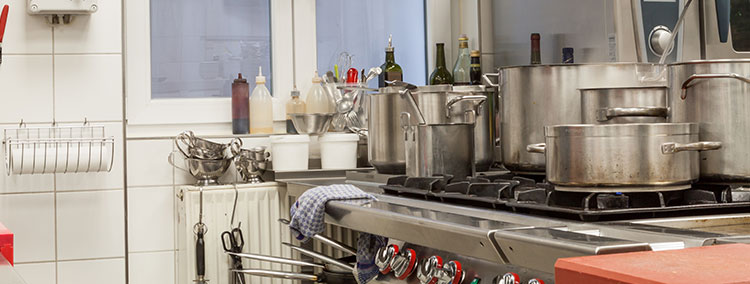
Imagine this. Your friends you have been avowing to that you are the best baker in town have come over to taste your delicacies. So you rush to the oven to showcase your prowess. You crank it on, and after waiting for a few minutes, you realize the oven isn’t getting hot. Why is my oven not getting up to temperature? You wonder.
According to oven repair professionals, this can be brought about by plenty of factors such as:
The heating element is defective.
When the oven isn’t heating, the most common reason is due to a defective heating element. If you have an electric oven, the oven has two elements: the one at the top for baking and another at the bottom for broiling. From time to time, due to old age and wear and tear, the elements will become defective, and you have to replace them to restore your oven to proper working condition.
If you have been trying to heat food, but it’s no reaching your desired temperature, check the heating element, and if it’s not glowing bright red, it’s not working, so you should replace it.
If you replace the element and still the oven won’t heat your food, you most likely have an electrical problem that you need to look into. Unless you have electrical knowledge, don’t try to fix the unit by yourself. Instead, get in touch with a professional electrician to help you out.
The oven isn’t calibrated.
An improperly calibrated oven will rarely reach the desired temperature, so you need to calibrate it to heat the food properly. To calibrate the oven, you need to use the dial located at the back of the temperature knob or down at the bottom of the small shaft.
Use the adjustment screw on the dial to adjust the temperature. To increase the oven temperature, turn the screw clockwise and decrease the temperature by turning the screw counterclockwise.
As you are turning the screw, note that half turns should increase or decrease the oven temperature by 25 degrees, so you should know your desired temperature so don’t turn the temperature too high or too low.
The temperature sensor or bulb is out.
Many electrical ovens have a temperature sensor that monitors the oven temperature. Unfortunately, like any oven part, the sensor can become defective, preventing the oven from heating correctly.
Most sensors have a digital display on the oven to tell when the sensor isn’t working properly.
Like with the electrical problems, don’t try to fix the sensors if you don’t know what you are doing, as you most likely will cause more harm than was already there.
The ignitor is out
If you have a gas oven, one reason for it not working is a faulty ignitor. To confirm that this is the culprit, you need to inspect the oven.
Begin with pulling the oven away from the wall and shut off the gas. The ignitor will be located at the back of the oven compartment, and to remove it, you need to unbolt it from the oven floor.
Using a multimeter, look out for continuity of power. If this is your first time using the multimeter, you should place one probe in one of the terminals and the other on the second terminal. A properly functioning ignitor should register between 0-100 ohms, and if it fails to do it, the ignitor will have lost continuity, and you have to replace it.
You can replace the ignitor by yourself if you know what you are doing, but let an expert handle it if you have never done it before.
Bad relays
Bad relays will also prevent the oven from heating as well as it should. Does your oven have two heating elements? It has two relays that can burn out over time.
Different ovens have different ways to access the relays, so you should follow your owner’s manual for instructions on how to access and fix your relays.
If you have gone through the manual and still can’t understand the instructions, get in touch with an experienced appliance repair Springfield professional to help with the inspection and replacement of the damaged relays.
When hiring the repair professional, take caution that you don’t hire just any contractor you come across. Take your time and hire the most experienced.
The post Why Is My Oven Not Getting Up To Temperature? first appeared on HVAC Repair, appliance repair. The post appeared first on Express Appliance Repair